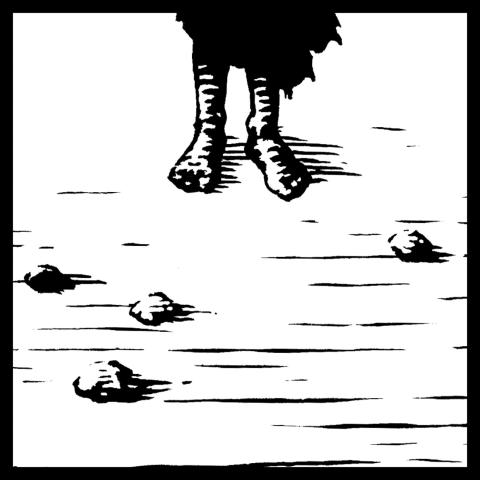
(Unsplash/Miguel Bruna)
Hell hath no fury like a mob riled up by demagogues. Some well-placed, hateful words can stir up ferocious shouts and actions that few of the people involved would perform singly or in moments of rational thinking. When mob action confers anonymity on hurting individuals, people can end up doing things that are ultimately as self-destructive as they are offensive. Like a gang of playground bullies, individuals can lose touch with their moral sense.
Although phrases like mob psychology came into vogue in the 20th century, the reality is as old as civilization. It happened in the Roman Colosseum in the first century; in the 16th-century Spanish Inquisition; in the Salem witch hunts of the 1690s; in 1965, when police let loose their dogs on marchers in Selma, Alabama; and in Charlottesville, Virginia, in 2017.
Today’s Gospel story of the woman accused of adultery is one of two Christian Scripture accounts of a throng involved in a lynching (not counting the crowd that cried: "Crucify him!"). It should come as no surprise that in the Christian story, this apparently guilty woman was forgiven, and the Acts of the Apostles tells us that the innocent Stephen was stoned by the crowd.
What are we to learn from the story of the officious rabble that dragged the accused adulteress into the middle of a circle to call on Jesus to act as a judge? The whole scene was a setup designed to put both of them on trial. The woman was exposed in public, accused by the requisite number of witnesses and surrounded by a hostile crowd. Although the crowd had already reached their verdict, the leaders attempted to force Jesus into the dilemma of disregarding either the law or mercy.
Jesus stole their thunder by interrogating the accusers. Which of them kept the law perfectly? The same law that said an adulteress should be stoned demanded the same punishment for a rebellious child. When was the last time parents in this crowd had taken their inebriated son to the city gates to be executed?
Advertisement
What did Jesus accomplish by inviting the morally perfect to cast the first stone? Instead of picking up rocks, Jesus aimed at getting the crowd to come to their senses. The truth of the matter was that their vengeance would harm them as much as the woman in question. They were sustaining a social world in which forgiveness would be as rare as absolute innocence and were therefore condemning themselves to being defined forever by their worst thoughts, words and deeds.
St. Augustine comments that at the end of this story, only two were left: misery and mercy. That may summarize not just this incident but the whole of the Christian Scriptures. Humanity has developed a particular expertise at creating misery.
Whether the accused woman was seeking affection or pleasure, or desperately selling her body for the sake of survival, her behavior was not designed to bring her satisfaction; she was involved in a fruitless quest. Like mansions built on sand, relationships that preclude commitment too often wound or maim the people involved as they fall apart. Deep down, she probably already knew that. All Jesus needed to offer her was mercy: "Neither do I condemn you." It was as if he told her: "Go, create something new."

(Mark Bartholomew)
In reality, the woman was easier to save than the crowd. They disappeared right after Jesus suffocated the flame of their fury with the wet blanket of honesty. But did they recognize the misery that had made them merciless? Did they learn that their readiness to condemn the sinner was rooted in their own insecurity? Did they get any hint that genuine religion encourages people to ask for and rejoice in forgiveness rather than pretending or even attempting perfection?
Perhaps the most effective thing Jesus accomplished with the crowd was to disperse them. As they went away one by one, they were left to face themselves without the reinforcement of the rabble.
Today, we suffer no dearth of scandals that can rile us up into self-righteous rage. Following the example of Pope Francis, our first question in these situations should be, "Who am I to judge?" The next and equally vital question is, "Who is suffering in this situation, and what are we called to do about it?" Those questions won't generate the cathartic unanimity of a mindless mob, but they can lead us to create communities of forgiveness and hope in which all can live and live well.
[Mary M. McGlone is a Sister of St. Joseph currently writing the history of the Sisters of St. Joseph in the U.S.]







